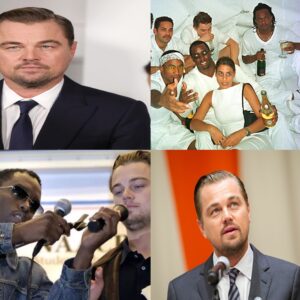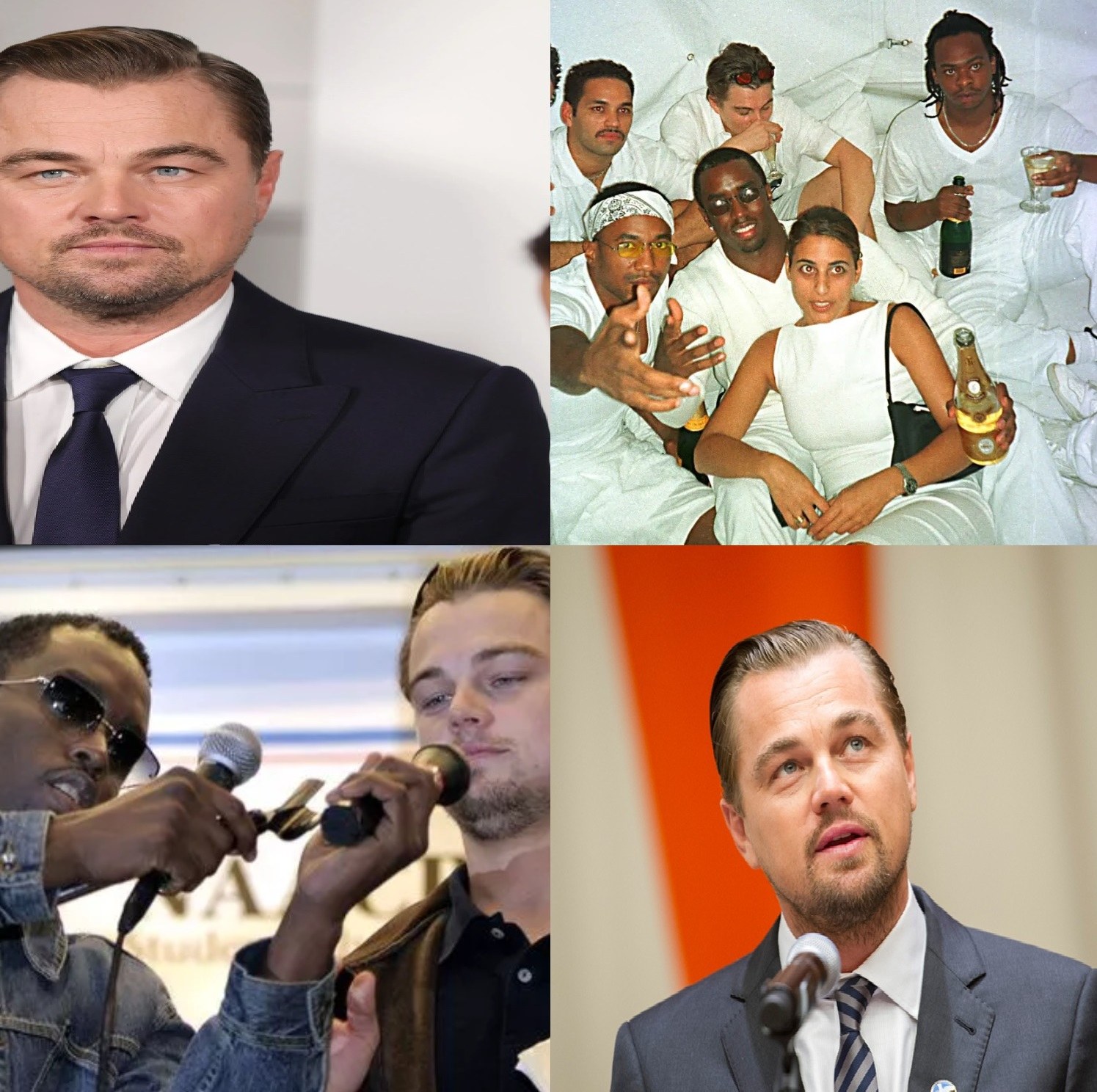In a recent statement that has sent shockwaves through both the entertainment industry and social media platforms, Leonardo DiCaprio has officially addressed rumors surrounding his alleged connection to hip-hop mogul Diddy, also known as Sean Combs.
This announcement comes in the wake of a photo that surfaced, reportedly showing DiCaprio at what has been dubbed the ‘naked party,’ an event that has drawn considerable attention and scrutiny from the public and press alike.

In his candid response, DiCaprio expressed deep regret for his actions during that period of his life, emphasizing a sense of accountability and acceptance of the potential consequences that may arise from his past decisions.
The resurfacing of the photo has reignited discussions about the celebrity culture surrounding events known for their excessive lifestyles and questionable moral implications. DiCaprio, a figure who has long been celebrated for his contributions to cinema and philanthropy, now finds himself at the center of a controversy that challenges his public persona. His statement reflects not only an acknowledgment of the event itself but also a recognition of the broader implications it may have on his career and personal reputation.
In his statement, DiCaprio stated, “I deeply regret my stupidity back then,” a phrase that resonates with anyone who has made impulsive decisions during their youth. By using the term ‘stupidity,’ he communicates a level of self-awareness and maturity that many fans appreciate. It’s a reminder that even the most accomplished individuals can find themselves making poor choices, particularly in the context of the lavish lifestyles often associated with Hollywood. This admission serves to humanize DiCaprio, allowing the public to see him not just as a Hollywood superstar but as a person who has navigated his own set of challenges and mistakes.
The implications of DiCaprio’s connection to Diddy extend beyond mere gossip; they raise questions about the influence of celebrity relationships on public perception. Diddy, a figure who has faced his own share of controversies over the years, adds a layer of complexity to DiCaprio’s situation. The intertwining of their names has led to speculation about the nature of their relationship and the environment in which they interacted. Fans and critics alike have begun to wonder whether DiCaprio’s attendance at such a party reflects a momentary lapse in judgment or a deeper alignment with the lifestyle often associated with the music mogul.
Furthermore, the notion of accountability is a recurring theme in DiCaprio’s statement. By expressing his willingness to “accept the consequences,” he acknowledges that actions have repercussions, a lesson that many people grapple with throughout their lives. In an age where public figures are often quick to deflect blame or make excuses, DiCaprio’s straightforward approach is refreshing and serves as a reminder of the importance of taking responsibility for one’s actions. It also opens the door for conversations about the broader cultural implications of celebrity lifestyles and the responsibilities that come with fame.
The reaction to DiCaprio’s statement has been varied, with some applauding him for his honesty and others expressing skepticism about the sincerity of his regret. Social media platforms have erupted with opinions, with fans discussing whether the actor’s acknowledgment of his past behavior is enough to mitigate the potential damage to his reputation. In a world where cancel culture thrives, the stakes for public figures are incredibly high. DiCaprio’s willingness to confront the situation head-on may help him navigate the tumultuous waters of public opinion, but it remains to be seen how this incident will impact his career in the long run.
Additionally, this incident raises important questions about the media’s role in shaping narratives around celebrities. The initial release of the photo sparked a flurry of headlines and sensationalized stories, often focusing more on scandal than on the context surrounding the event. As the media landscape continues to evolve, the line between responsible reporting and sensationalism becomes increasingly blurred. DiCaprio’s response serves as a reminder of the need for thoughtful discourse around celebrity culture, challenging the media to consider the human stories behind the headlines.
In the wake of this controversy, DiCaprio may find himself reflecting on the nature of his public persona and how it aligns with his personal values. Known for his advocacy work related to climate change and social justice, the actor has cultivated an image of someone who is deeply invested in making a positive impact on the world. This recent incident could serve as a catalyst for DiCaprio to re-evaluate his public and private life, potentially leading to a renewed focus on the causes he cares about and how he chooses to engage with his celebrity status moving forward.
In conclusion, Leonardo DiCaprio’s official acknowledgment of his connection to Diddy amid the swirling rumors and the emergence of the ‘naked party’ photo reflects a complex intersection of fame, accountability, and public perception. His admission of regret and willingness to face consequences resonates with many, serving as a reminder that even those in the limelight are not immune to making mistakes. As DiCaprio navigates the fallout from this incident, he stands at a crossroads that could shape his legacy and influence how he engages with the world moving forward. The incident serves as a cautionary tale about the pitfalls of celebrity culture, prompting a broader discussion about the responsibilities that come with fame and the importance of accountability in a world that often prioritizes sensationalism over substance.
